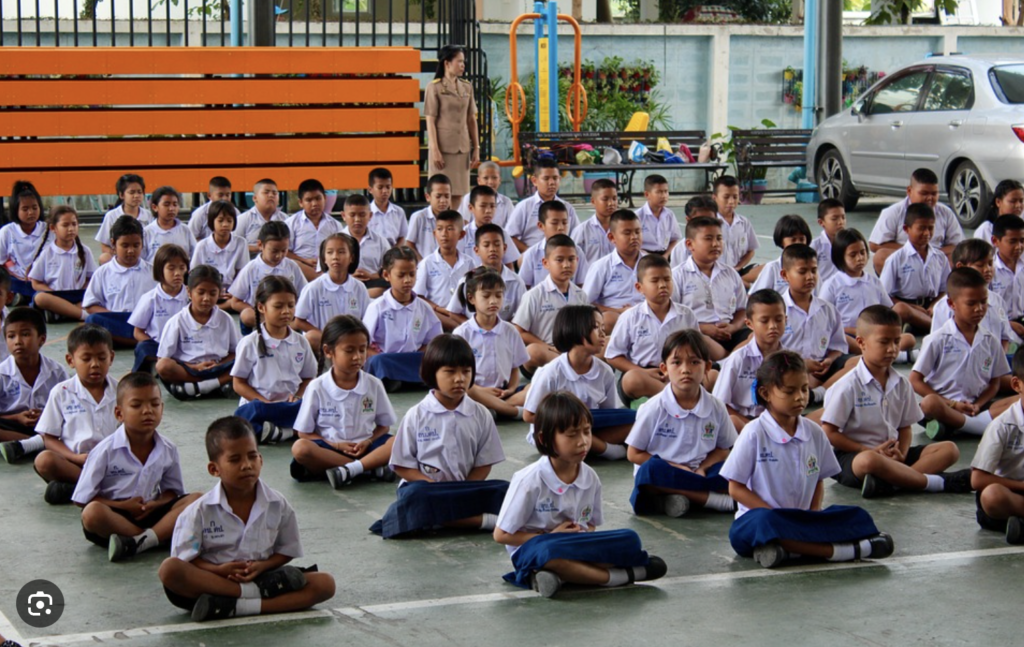If you’re serious about fixing our educational system, you should read John Taylor Gatto.
Gatto actually taught in the New York City public schools for more than 30 years, and was named both NYC Teacher of the Year and New York State Teacher of the Year for his efforts.
It’s precisely because he was such a wonderful teacher that he objects so much to the way things are done now. In his book “Dumbing Us Down: The Hidden Curriculum of Compulsory Schooling,” he starts by listing and explaining seven things a public school teacher is trying to teach his or her students.
1. CONFUSION:
Particularly in elementary school, kids have everything thrown at them. From astronomy to adjectives, from long division to physical education, nothing is emphasized as being more important than anything else. Essentially kids are told that it’s better to know a little about everything than a lot about one thing.
If you want to learn a lot about something, there’s always college, trade school or the military. The education you get in K-12 is almost worthless in helping you live your life.

2. CLASS POSITION:
Where we assign you is where you belong. You learn to envy and fear the kids who are smarter and have contempt for the ones who are dumber. It’s a caste system nearly as rigid as India, and it’s nearly as difficult to escape your assigned position.
You learn that there will always be people better than you and there will always be people you can look down on.
3. INDIFFERENCE:
We teach children not to care too much about anything. You might love math and be really good at it, but when math is over it’s time to move on to history. We learn on the installment plan, and we learn when the teacher wants us to learn.
There’s always time later to be enthusiastic — if you don’t get burned out.
4. EMOTIONAL DEPENDENCY:
Thirsty? Need to go to the bathroom? Ask the teacher, and if someone else is already using the hall pass, prepare to wait your turn. The teacher giveth and the teacher taketh away.
Everything depends on the teacher, and if the teacher doesn’t like you, you’re in for daily pain and aggravation.
5. INTELLECTUAL DEPENDENCY:
A good student waits for the teacher to tell them what to do. Gatto says this is the most important lesson of all, that we must wait for people smarter than we are to tell us what our lives mean.
A critic put that in a very interesting way:
“We just need to help every child from the time he or she enters school to start thinking properly.”
6. PROVISIONAL SELF-ESTEEM:
Kids are constantly being judged and evaluated, and if they don’t measure up, we tell them there’s something wrong with them.
The catch here is that kids who know their parents love them unconditionally can’t be touched by this one. Both of my children ran afoul of a teacher at one point during high school, and in each case, the teacher told them they were bad kids.
They knew they weren’t, though. They knew we loved them and were proud of them no matter what someone else said about them. Yeah, they were bad kids. So bad, in fact, that my daughter got two degrees from UCLA cum laude and my son graduated magna cum laude from Cal State Northridge.
In early middle age, both of them have jobs that really matter and both have six-figure incomes. Neither has ever had to ask anyone if they want fries with that hamburger.
7. ONE CANNOT HIDE:
Kids are under constant surveillance, constant supervision. Anytime they leave the classroom, they need a pass. Even in their free time, they’re given homework so that the teacher can have some control over what they’re doing.
***
We did this.
We created generations of kids who hate school, and by extension who hate learning. Why is it that something like 65 percent of adults never read books after they finish school? My guess is because they’re taught that reading is a chore, something to be endured.
Would I eliminate public education? Not on your life. Everybody needs to know how to read, to write and to do basic mathematics, but I’m not sure that learning how to fix a computer wouldn’t be more useful than memorizing facts about the sack of Rome or the exports of Argentina.
What I would eliminate is a system based on fear and loathing, a system where fitting in and winning teacher’s approval is first and foremost.
What we have now is little more than a baby-sitting service, little more than a way of keeping kids off the streets while their parents are working.
It seems to me we ought to do better than that.
